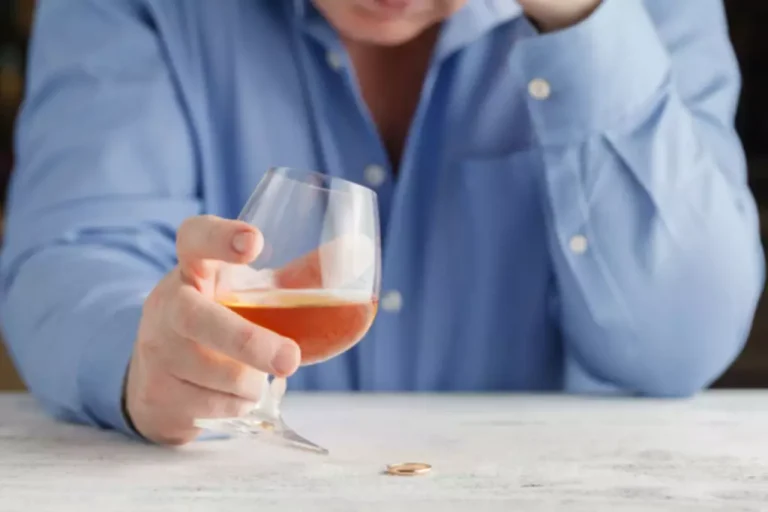
Lukas recruited 14 men and women in their 20s to spend four 90-minute sessions consuming beer and watching TV. Researchers selected people who said they regularly consumed three to four drinks per day. ‘Perfectly safe’In 2003, David Overstreet https://ecosoberhouse.com/article/what-is-the-life-expectancy-of-an-alcoholic/ and other scientists found the herb to be effective in reducing alcohol intake on rats. Findings show that subjects who took kudzu drank an average of 1.8 beers per session, compared with the 3.5 beers consumed by those who took a placebo.

A single dose of kudzu extract reduces alcohol consumption in a binge drinking paradigm

Furthermore, it’s likely that the suggested doses for kudzu root will vary depending on the manufacturer and the type of supplement you may be considering. There isn’t much scientific evidence available on the dosing for kudzu root as a supplement. For this reason, it’s difficult kudzu to stop drinking to make recommendations for various uses. While kudzu root may offer a few specific benefits, there are also some potential downsides to consider. Some health companies sell the kudzu root species Pueraria mirifica as a supplement for menopausal and postmenopausal women.
- This interpretation of kudzu’s possible mechanism of action was also suggested by Wong et al. (2011) who postulated that kudzu alters peripheral and cerebral blood flow.
- It is crucial for individuals struggling with alcohol addiction to seek professional help and consider evidence-based treatments.
- A prior study of kudzu to treat alcohol use in an outpatient setting reported that kudzu had no effect on maintaining sobriety or altering alcohol craving (Shebek and Rindone, 2000).
- Therefore, it’s always best to consult your healthcare provider before taking it.
6 Data Analysis
- Extracts of the kudzu plant are best known for their ability to suppress alcohol intake or alter alcohol effects by laboratory animals (Heyman et al., 1996; Keung and Vallee, 1993b; Keung, 2003; Overstreet et al., 1996; Rezvani et al., 2003; Benlhabib et al., 2004).
- If left unchecked, metabolic syndrome can increase your risk of developing heart disease, and type 2 diabetes.
- Although I’m sure it would have helped me detoxify, I did not use it after I quit drinking.
- In addition to reducing daily drinking, naltrexone has been shown to reduce alcohol cravings as a measurable symptom (3).
- Until the effects of kudzu can be quantified properly in a larger study, then, and a standardised product is available on the market with the THR mark, it’s not something we can recommend you take.
In addition, responses to the audible prompts multiple times a day were used to assess desire to consume alcohol. Participants filled out a daily diary every morning as soon as possible upon awakening. Three questions asked them to report how many alcoholic drinks, tobacco cigarettes and caffeinated beverages they consumed and two questions asked about bedtime and wake time. While the blood flow theory of kudzu for alcoholism may be true, there is likely more going on here. It contains several active isoflavones, which are natural plant chemicals with antioxidant effects.
Possible benefits
The roots are also resistant to herbicides and it can take 3–10 years of repeated treatments with herbicides before the nutrient reserves of the roots are exhausted. As a specific example, a small study published in the journal Drug and Alcohol Dependence involved 140 adults and indicated that a short session of aerobic exercise reduced cravings for alcohol (10). Although the available evidence is mixed or lacking in humans, the following natural supplements, herbs, and vitamins might help curb alcohol cravings (5, 6, 7). The fiber-rich, complex carbohydrates in whole-grain breads and foods like brown rice, quinoa, barley, and farro are digested more slowly, which help keep blood sugar levels steady. This is key to keeping cravings under control, especially when your body is used to using alcohol as a quick form of fuel. Disulfiram is a pill that causes unpleasant side effects when combined with alcohol.
Clinical Overview

A total of 32 participants (28 men, 4 women) between the ages of 21 and 40 years old were recruited through advertisements in local newspapers and on the internet (e.g., CraigsList and local University websites) to participate in this study. Inclusion criteria included good physical and mental health, a body mass index (BMI) between 18 and 30, ages between 21 and 40 yrs, and a self-reported drinking pattern of 15 drinks per week or incidences of binge drinking 2 or more times per week. Kudzu extract was administered in gelatin capsules containing 500 mg of extract (Alkontrol-Herbal™; NPI-031) prepared by Natural Pharmacia International, Inc., Burlington, MA. The extract contained 26% (130 mg) active isoflavones (20% puerarin, 4% daidzin, 2% daidzein; an improved HPLC analysis revealed that the total puerarin content includes both puerarin and 3-methoxypuerarin.). Participants were randomized on a blind basis to receive either 4 capsules of the extract (for a total of 520 mg isoflavones) or placebo (sugar beet filler) 2.5 hours before the start of an afternoon drinking session.


